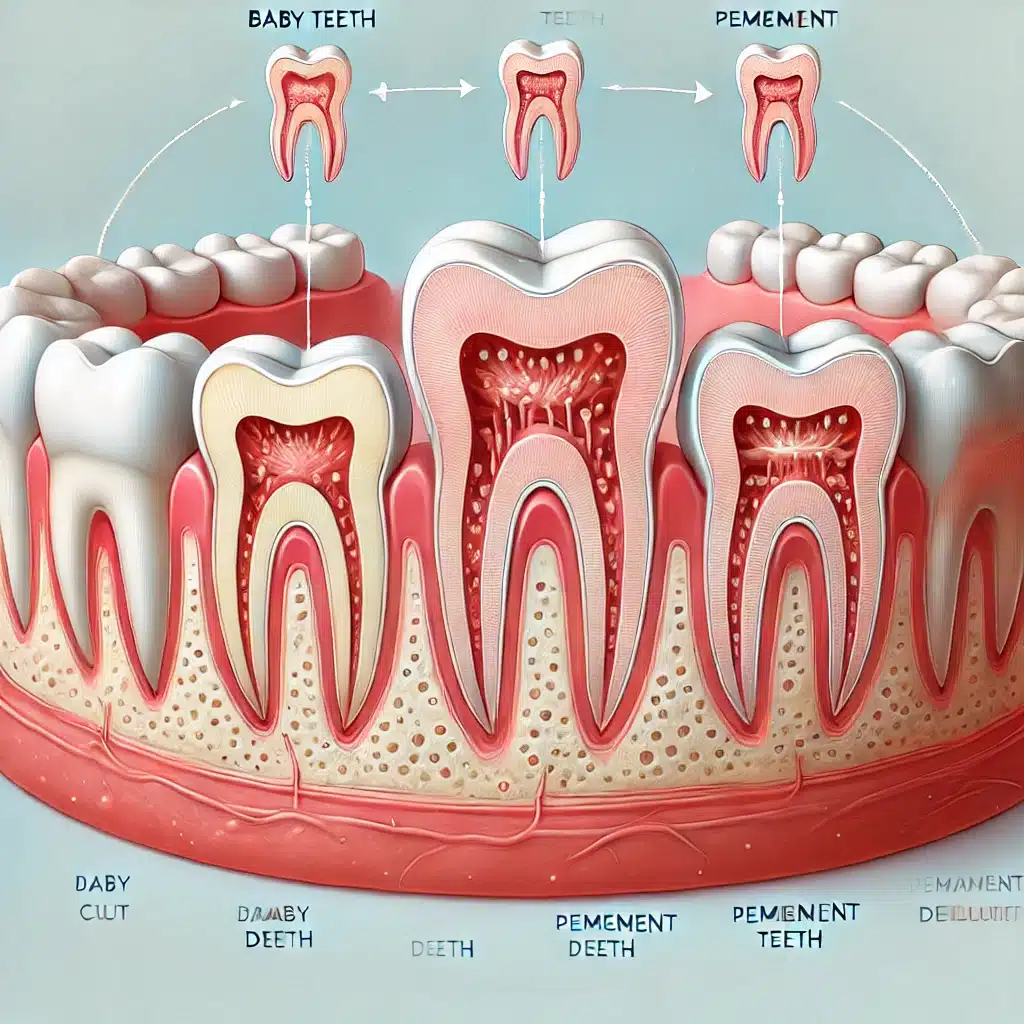How Long Does It Take for a Tooth to Grow Back?
The process of tooth growth and regeneration varies based on age, type of tooth, and biological factors. Unlike some animals, humans have two sets of teeth in their lifetime—primary (baby) teeth and permanent (adult) teeth. But what happens when a tooth is lost? Does it grow back? Let’s explore the timeline and factors affecting tooth regrowth.
The Timeline for Baby Teeth to Grow Back
When Do Baby Teeth Fall Out?
Baby teeth, also known as primary teeth, typically start falling out around the age of 6 to 7 years. This process continues until around age 12 or 13, when most children will have their full set of permanent teeth.
How Long Does It Take for Permanent Teeth to Grow In?
Once a baby tooth falls out, the permanent tooth underneath usually takes a few weeks to a few months to emerge. On average, it takes 6 months for a permanent tooth to fully come in after a baby tooth is lost. However, this timeline can vary based on genetics, nutrition, and oral health.
What About Adult Teeth? Do They Grow Back?
Unfortunately, once a permanent tooth is lost due to decay, trauma, or extraction, it does not grow back naturally. Unlike baby teeth, there are no replacements waiting underneath. However, advancements in dental science have introduced several solutions for missing teeth.
Factors That Affect Tooth Growth
1. Age and Genetics
The speed of tooth eruption is largely influenced by genetics. Some individuals may experience faster tooth growth, while others might have delayed development.
2. Nutrition and Diet
A nutrient-rich diet plays a crucial role in dental development. Calcium, phosphorus, and vitamin D are essential for strong teeth and proper growth.
3. Oral Health and Hygiene
Maintaining good oral hygiene ensures that the gums and surrounding tissues stay healthy, supporting the natural growth of teeth.
4. Trauma or Injury
Injuries to the mouth can delay or even prevent a tooth from emerging. If a baby tooth is lost prematurely due to an accident, it can impact the alignment and eruption of the permanent tooth.
Can Science Help Regrow Teeth?
The Future of Tooth Regeneration
Researchers are actively working on regenerative dentistry, exploring ways to regrow teeth using stem cells and tissue engineering. Scientists believe that in the near future, dental patients may have the ability to regenerate lost teeth naturally.
Current Options for Replacing Lost Teeth
Since natural tooth regrowth isn’t possible after losing a permanent tooth, the following options are available:
- Dental implants – Artificial roots placed into the jawbone
- Bridges – A false tooth anchored to adjacent teeth
- Dentures – Removable replacements for missing teeth
How to Promote Healthy Tooth Growth?
To ensure proper dental development and reduce the risk of tooth loss, follow these tips:
- Brush and floss daily to maintain oral hygiene.
- Eat a balanced diet rich in calcium and vitamins.
- Avoid excessive sugar to prevent cavities and decay.
- Visit a dentist regularly for check-ups and cleanings.
- Protect your teeth from injuries by using mouthguards during sports.
Conclusion
The timeline for tooth growth depends on age, genetics, and oral health. While baby teeth naturally fall out and are replaced, permanent teeth do not grow back. With advances in dental technology, the future of tooth regeneration looks promising, but for now, proper care and dental solutions remain the best options for maintaining a healthy smile.
Taking care of your teeth today ensures a strong, healthy, and long-lasting set for the future!
How Evolving Cancer Treatments are Shaping Modern Healthcare




